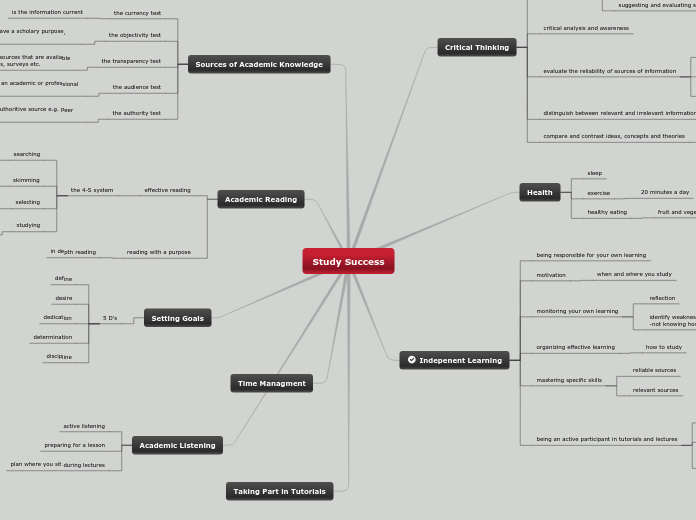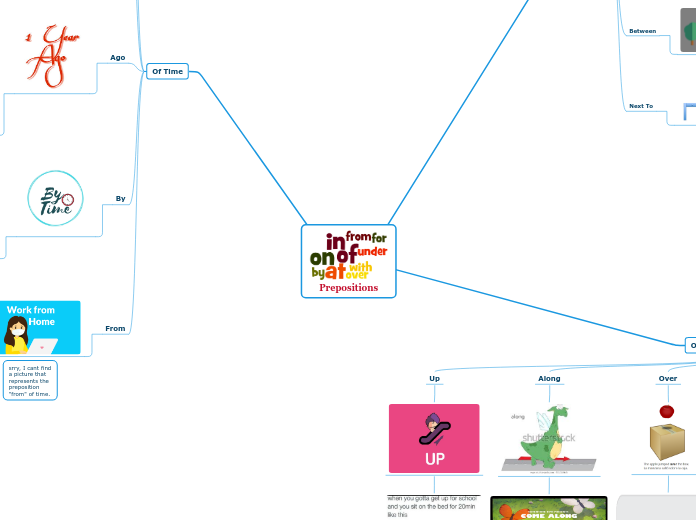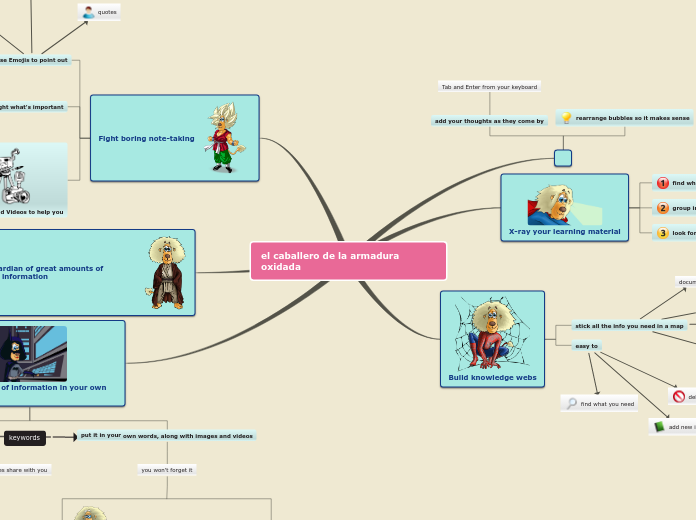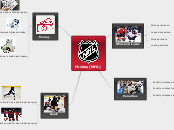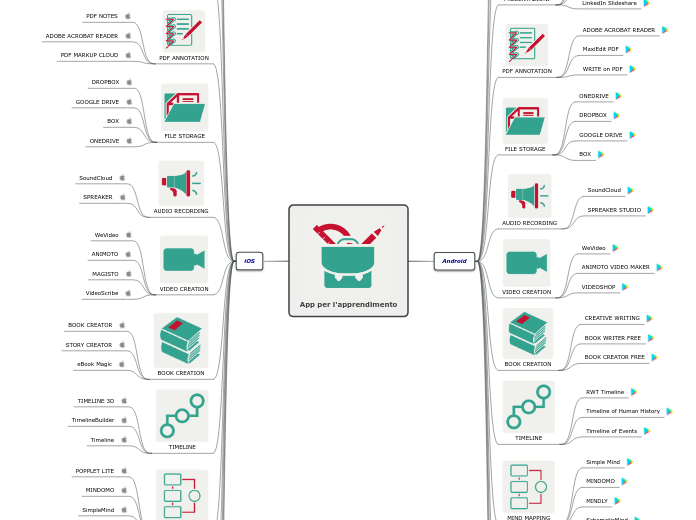Study Success
Taking Part in Tutorials
Academic Listening
plan where you sit during lectures
preparing for a lesson
active listening
Time Managment
Setting Goals
5 D's
discipline
determination
dedication
desire
define
Academic Reading
reading with a purpose
in depth reading
effective reading
the 4-S system
studying
reading the selected text carefully and efficiently using the skills mentioned above.
selecting
choosing parts of the text to read in depth
skimming
identifying the main point using the introduction, conclusion, hypothesis and topic sentences
searching
getting a general idea of the book from the title, back cover, abstract and table of contents
Sources of Academic Knowledge
the authority test
information must come from an authoritive source e.g. peer review journals
the audience test
is the information written for and an academic or professional audience
the transparency test
reliable information is gathered from sources that are available to the public (statistics, questionnaires, surveys etc.
the objectivity test
does the information information have a scholary purpose, e.g. not an advertising purpose
the currency test
is the information current
Indepenent Learning
being an active participant in tutorials and lectures
making presentations then engaging the class in a discussion on the topic
participating in practical laboratory sessions and workshops
asking questions
mastering specific skills
relevant sources
reliable sources
organizing effective learning
how to study
monitoring your own learning
identify weaknesses in learning
-not knowing how to use computers or the library
reflection
motivation
when and where you study
being responsible for your own learning
Health
healthy eating
fruit and vegetables
exercise
20 minutes a day
sleep
Critical Thinking
compare and contrast ideas, concepts and theories
make connections between ideas and concepts in different disciplines
distinguish between relevant and irrelevant information
evaluate the reliability of sources of information
evaluate ideas, concepts and theories
identify assumptions and evaluate them
explore implications and consequences
critical analysis and awareness
problem solving
suggesting and evaluating solutions to problems
transferring knowledge and understanding to new concepts
define and describe concepts, ideas and theories without evaluating them
